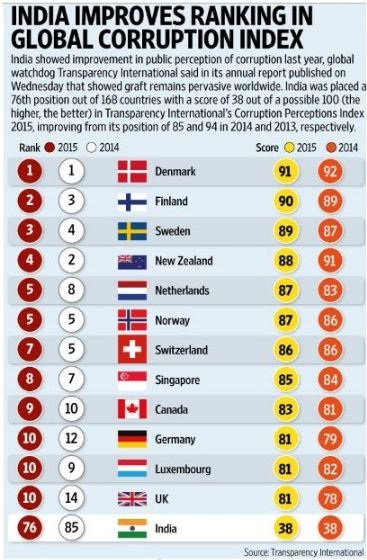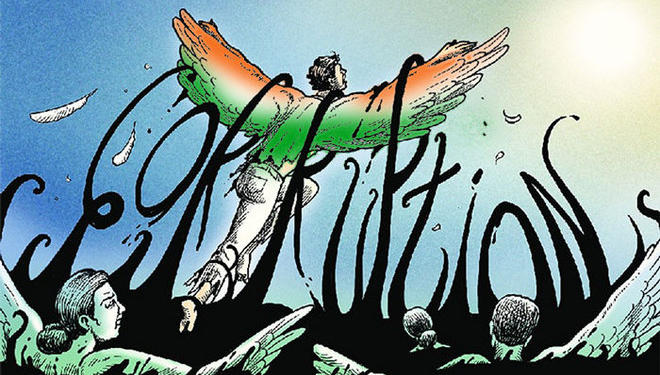UK India Business Council (UKIBC), a UK based non-profit organisation in its fourth annual report declared that corruption is no longer a major issue for businesses in India. “Those identifying ‘corruption’ as a major barrier has declined far more dramatically over the four-year course of this survey among those currently doing business in India [decline of 27% in the last two years] where it is no longer considered a ‘top-three’ barrier compared to those not currently active in India,” said the report. UKIBC was founded in 2007 to foster business relations between India and the UK. Its predecessor, Indo-British partnership had worked since 1993 to improve trade relations between both the countries. The organisation caters to UK Businesses for policy research which gives them insights about the Indian business environment.
Most of the UK Businesses seek the expertise of council while setting up businesses in India. The first annual Ease of Doing Business report was produced by the organisation in 2015 and since then it has remained as a major policy document for businesses in United Kingdom as well as in Europe. London, the financial capital and the capital city of England is the gateway for European businesses in India. Therefore, the findings of the report by UKIBC seek to improve business sentiment not only in the UK but also across Europe. The European Union is the largest trading partner of India, accounting for 12.5 percent of the total trade of the country, ahead of China (10.5 percent) and United States (9.3 percent). India is also negotiating a free trade deal with the European Union; the businesses across Europe will push their governments for swifter movement for the free-trade deal. The positive findings of the report will encourage the European business leaders to invest more in India and in return the business leaders to contribute in improving the relations with India through their respective governments.
When the Ease of Doing Business report was first published in 2015, the corporate leaders viewed corruption as a major barrier for businesses to flourish in India. However, the perception has changed significantly in the last few years, “Since the first report was launched, there has been a considerable year-on-year fall in the number of companies that viewed ‘corruption’ as a major barrier – from 34% in 2016 to 25% in 2017, halving since 2015, where it stood at 51%,” said the report. “This decline shows a major improvement, indicating that the current government’s efforts to mitigate corruption appear to be delivering tangible and much-desired results,’ it added.
The report also highlighted the role of digitisation in tackling the issue of corruption in the last few years. The ‘Digital India’ programme of Modi government and the entry of big private players has pushed the digital literacy in the country in the northward direction. The data rates have gone down significantly in the last two years since the advent of Jio. Now, India has one of the cheapest data rates in the world. The cheap data and affordable smartphones have eased government’s efforts to digitalise the country. “Initiatives such as Aadhaar, electronic submission of government documents, acceptance of electronic signatures, and the push to file taxes online, have all reduced face-to-face interactions where corruption is most likely to take place,” noted the report.

The improvement on the corruption front also came in to limelight when Corruption Perception Index which ranks countries by their perceived levels of corruption, determined by expert assessments and opinion surveys, showed the improvement in India’s rankings. India has gone up by 6 ranks in the last four years, the score improved from 36 to 40. In 2013, India was ranked 85th and now it is ranked at 79th. Despite the perception of India being a corrupt nation; the ratings of India and China are similar. The Communist China where government controls everything with Iron fist finds itself at the same level as India. The ‘Corruption Perception Global’ is published by the corruption watchdog Transparency International (TI) in which it ranks nations on the basis of corruption.
























